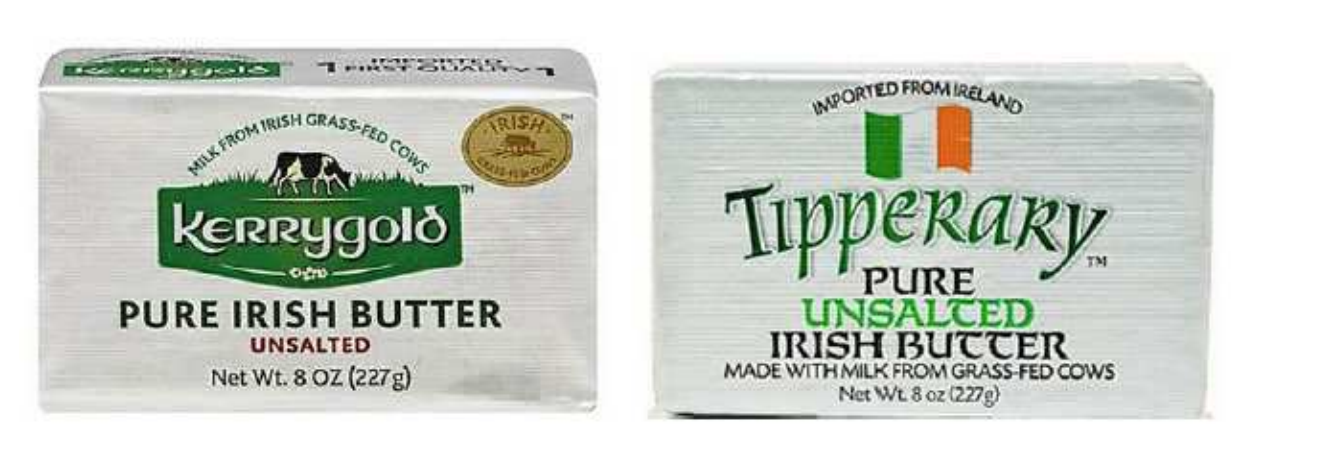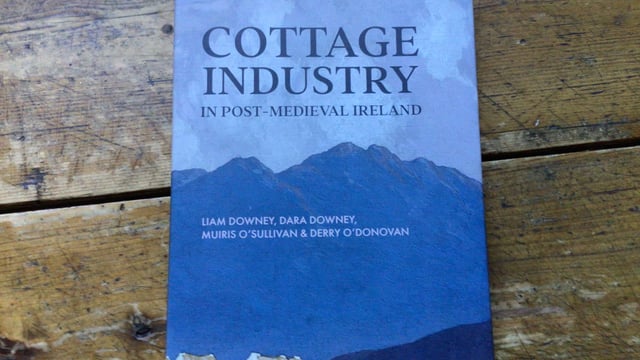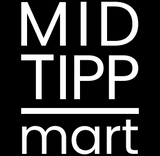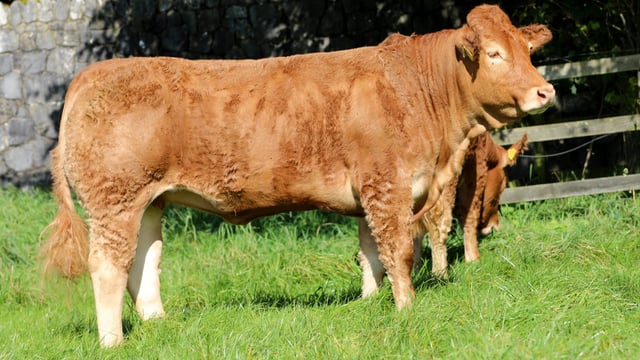US judge rejects Ornua butter packaging trademark claims
A US judge has rejected claims made by Ornua, the owner of the Kerrygold butter brand, that the similarity of a competitor's packaging to its own would cause confusion among consumers.
The case brought before the US District Court in the southern district of New York centred on the packaging on two unsalted Irish butters: Kerrygold and Tipperary.
Ornua produce and sell Kerrygold unsalted Irish butter in grocery stores across the US. In 2021, Abbey Specialty Foods also began selling an unsalted Irish butter, Tipperary, in the US.
Images provided to the court show that both companies’ butters are sold in packages wrapped in metallic silver foil and each contain references to the Irish origin of the butter.
Ornua brought the action against Abbey for trade dress infringement, unfair competition, trade dress dilution, and deceptive business practices, claiming that Tipperary’s butter package is confusingly similar to Kerrygold’s.
Abbey moved for summary judgment on each of Ornua’s claims, except for the trade dress dilution.
In a ruling issued this week, US District Court Judge Jessica G. L. Clarke found that the two packages are not likely to be confused and granted summary judgment in favor of Abbey.
According to the court documents, Ornua stated that between 2018 and 2022, it spent over $226 million on advertisements in North America relating to the Kerrygold brand, including print, television, and digital and social media campaigns.
Since 2018, sales of Kerrygold unsalted butter account for over 30% of the US market for unsalted premium butter products.
Sales of Kerrygold’s unsalted butter in the US grew from $30.9 million in 2018 to $68.6 million in 2022, the documents outlined.
As evidence of Abbey’s bad faith, Ornua cited emails between Abbey’s owner and its package designer discussing the Tipperary package.
Ornua stated that the emails occurred after Abbey’s owner learned that a retail grocer would no longer sell Kerrygold butter and approached Abbey to supply a new Irish butter.
Ornua also pointed to an email from Abbey’s supplier, Lakeland Dairies, warning Abbey’s owner that “Ornua could throw the weight of their trademarks (including trade dress) into legal proceedings against . . . Tipperary Brand".
The email noted that Ornua have a specific trademark for the gold foil and green writing.
In August 2020, Abbey’s owner instructed the package designer to change the packaging for its salted butter from gold foil to black foil, but did not change the silver packaging on the unsalted butter.
In her ruling, Judge Clarke said that "the overall impressions of the Kerrygold and Tipperary trade dresses are unlikely to cause confusion among reasonably prudent purchasers".
The judge said that Ornua failed to demonstrate that Abbey created the Tipperary trade dress "with the intent to deceive consumers".
"Ornua’s evidence demonstrates at most that Abbey intended to imitate features of Kerrygold’s packaging.
"But none of the evidence cited suggest that Abbey intended to deceive consumers into believing that its butter was made or sponsored by Kerrygold," she said.
"The evidence presented demonstrates no actual consumer confusion, no bad faith on the part of Abbey, and, most importantly, that the Kerrygold and Tipperary trade dresses are sufficiently distinct and dissimilar.
"Accordingly, no reasonable jury could find likelihood of confusion," Judge Clarke added.
In a statement to Agriland following the court ruling, a spokesperson for Ornua said: "Ornua places the highest priority on the protection of the Kerrygold brand and its distinctive trademarks and trade dress.
"We have no further comment to make at this time," they added.






